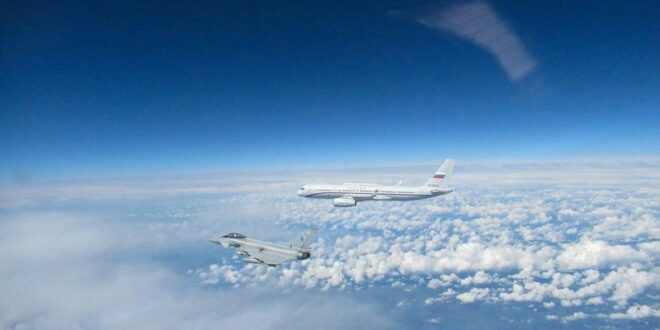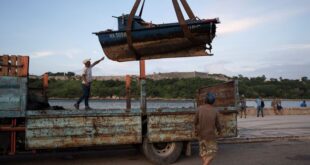BERLIN (Reuters) – Scrambles of NATO jets to intercept Russian aircraft approaching allied airspace over the Baltic Sea region went up 20% to 25% in the first quarter of 2024, a NATO source said on Thursday, with the increased Russian activity likely due to a hike in NATO drills.
The source declined to give a concrete figure for the number of Russian military flights encountered close to NATO territory.
Last year, NATO said allied fighter jets took off over 300 times to intercept Russian military aircraft, with most of the incidents occurring over the Baltic.
Since then, however, NATO has noticed a change in the mix of Russian aircraft spotted close to allied territory, the source, speaking on condition of anonymity, told Reuters.
Unlike in the past, Western pilots these days barely detect any Russian fighter jets or strategic bombers approaching allied airspace, and most intercepts now involve surveillance aircraft or sometimes transport planes, the source said.
It is not clear why Russia has changed its behaviour but there is an assumption that Moscow needs its bombers and fighter jets in Ukraine as fighting there has been growing in intensity, the source added.
NATO says Russian military aircraft have a history of not transmitting a transponder code indicating their position and altitude, not filing a flight plan and not communicating with air traffic controllers.
Following Russia’s full-scale invasion of Ukraine in February 2022, the Western military alliance ramped up its presence along its eastern flank, sending more fighter jets there and setting up ground-based air defences.
NATO also deployed extra fighter jets to Romania after repeated Russian strikes on Ukrainian infrastructure close to the alliance’s southeastern border.
At the beginning of the year, NATO launched its largest exercise since the Cold War, involving some 90,000 troops.
The drills are meant to rehearse NATO’s execution of its regional plans – the first defence plans the alliance has drawn up in decades – detailing how it would respond to a Russian attack.
(Reporting by Sabine Siebold; editing by Jonathan Oatis)
 BeritaKini.biz Berita Viral Terkini di Malaysia
BeritaKini.biz Berita Viral Terkini di Malaysia





